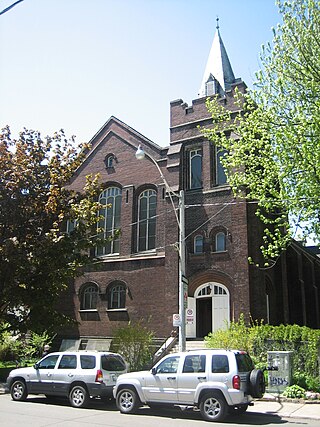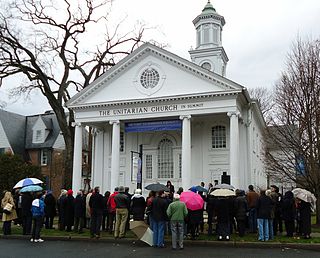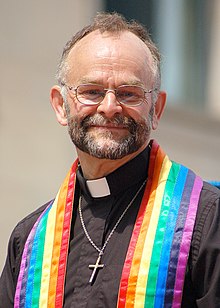
Same-sex marriage was progressively introduced in several provinces and territories of Canada by court decisions beginning in 2003 before being legally recognized nationwide with the enactment of the Civil Marriage Act on July 20, 2005. On June 10, 2003, the Court of Appeal for Ontario issued a decision immediately legalizing same-sex marriage in Ontario, thereby becoming the first province where it was legal. The introduction of a federal gender-neutral marriage definition made Canada the fourth country in the world, and the first country outside Europe, to legally recognize same-sex marriage throughout its borders. Before the federal recognition of same-sex marriage, court decisions had already introduced it in eight out of ten provinces and one of three territories, whose residents collectively made up about 90 percent of Canada's population. More than 3,000 same-sex couples had already married in those areas before the Civil Marriage Act was passed. Most legal benefits commonly associated with marriage had been extended to cohabiting same-sex couples since 1999.

The Metropolitan Community Church (MCC), also known as the Universal Fellowship of Metropolitan Community Churches (UFMCC), is an international LGBT-affirming mainline Protestant Christian denomination. There are 222 member congregations in 37 countries, and the fellowship has a specific outreach to members of the LGBT community.
Events from the year 2003 in Canada.

Egale Canada is an advocacy organization founded in 1986 by Les McAfee to advance equality for Canadian lesbian, gay, bisexual and transgender (LGBT) people and their families, across Canada.

Transgender rights in Canada, including procedures for changing legal gender and protections from discrimination, vary among provinces and territories, due to Canada's nature as a federal state. According to the 2021 Canadian census, 59,460 Canadians identify as transgender. Canada was ranked third in Asher & Lyric's Global Trans Rights Index in 2023.

Same-sex marriage has been legal in Ontario since June 10, 2003. The first legal same-sex marriages performed in Ontario were of Kevin Bourassa to Joe Varnell, and Elaine Vautour to Anne Vautour, by Reverend Brent Hawkes on January 14, 2001. The legality of the marriages was questioned and they were not registered until after June 10, 2003, when the Court of Appeal for Ontario in Halpern v Canada (AG) upheld a lower court ruling which declared that defining marriage in heterosexual-only terms violated the Canadian Charter of Rights and Freedoms.

Same-sex marriage has been legal in Nova Scotia since September 24, 2004 when the province began issuing marriage licences to same-sex couples immediately following a court ruling from the Nova Scotia Supreme Court. Nova Scotia was the sixth jurisdiction in Canada, and the ninth worldwide after the Netherlands, Belgium, Ontario, British Columbia, Quebec, Massachusetts, Yukon, and Manitoba, to legalise same-sex marriage.

Same-sex marriage has been legal in New Brunswick since June 23, 2005 in accordance with a ruling from the Court of Queen's Bench of New Brunswick. This decision followed similar cases in eight other provinces and territories, and pre-dated by only one month the federal Civil Marriage Act of 2005, which legalised same-sex marriage throughout Canada. New Brunswick was the ninth jurisdiction in Canada to recognise same-sex marriage, and the twelfth worldwide.

Same-sex marriage has been legal in Prince Edward Island since July 20, 2005. The Canadian province began the process of updating its laws to recognize same-sex marriage after the passage of the Civil Marriage Act in the House of Commons of Canada. Prince Edward Island had been one of only four provinces and territories, with Alberta, the Northwest Territories and Nunavut, where same-sex marriage had not already been legalized by court challenges prior to the passage of the law.

The Presbyterian Church in Canada is a Presbyterian denomination, serving in Canada under this name since 1875. The United Church of Canada claimed the right to the name from 1925 to 1939. According to the Canada 2021 Census 301,400 Canadians identify themselves as Presbyterian, that is, 0.8 percent of the population.

The Metropolitan Community Church of Toronto is a congregation of the worldwide Metropolitan Community Church movement located in Toronto, Ontario, Canada and is a welcoming congregation openly affirming lesbian, gay, bisexual, heterosexual and transgender people. MCC Toronto was instrumental in changing the law on same sex marriage in Ontario, when two same-sex marriage ceremonies performed at the church on January 14, 2001 initiated the process leading to the Halpern v Canada (AG) decision of 2003.

Canadian lesbian, gay, bisexual, and transgender (LGBT) rights are some of the most extensive in the world. Same-sex sexual activity, in private between consenting adults, was decriminalized in Canada on June 27, 1969, when the Criminal Law Amendment Act, 1968–69 was brought into force upon royal assent. In a landmark decision in 1995, Egan v Canada, the Supreme Court of Canada held that sexual orientation is constitutionally protected under the equality clause of the Canadian Charter of Rights and Freedoms. In 2005, Canada became the fourth country in the world, and the first in the Americas to legalize same-sex marriage. In 2022, Canada was the third country in the world, and the first in North America, to fully ban conversion therapy nationwide for both minors and adults.

Halpern v Canada (AG), [2003] O.J. No. 2268 is a June 10, 2003 decision of the Court of Appeal for Ontario in which the Court found that the common law definition of marriage, which defined marriage as between one man and one woman, violated section 15 of the Canadian Charter of Rights and Freedoms.

Unitarian Universalism, as practiced by the Unitarian Universalist Association (UUA), and the Canadian Unitarian Council (CUC), is a non-Creedal and Liberal theological tradition and an LGBTQ affirming denomination.
This is a timeline of notable events in the history of the lesbian, gay, bisexual and transgender (LGBT) community in Canada. For a broad overview of LGBT history in Canada see LGBT history in Canada.
The Anglican Church of Canada is the third largest church in Canada, after the Roman Catholic Church and the United Church of Canada. After many years of debate, the first blessing of a same-sex partnership took place in 2003, by the Diocese of New Westminster, in Vancouver. This was not considered a marriage ceremony, but rather a blessing of "permanent and faithful commitments" between persons of the same sex.
Although same-sex sexual activity was illegal in Canada up to 1969, gay and lesbian themes appear in Canadian literature throughout the 20th century. Canada is now regarded as one of the most advanced countries in legal recognition of lesbian, gay, bisexual, and transgender (LGBT) rights.
This article gives a broad overview of lesbian, gay, bisexual and transgender (LGBT) history in Canada. LGBT activity was considered a crime from the colonial period in Canada until 1969, when Bill C-150 was passed into law. However, there is still discrimination despite anti-discrimination law. For a more detailed listing of individual incidents in Canadian LGBT history, see also Timeline of LGBT history in Canada.
The Right to Privacy Committee (RTPC) was a Canadian organization located in Toronto, and was one of the city's largest and most active advocacy groups during the 1980s, a time of strained police-minority relations. The group focused on the Toronto Police Service's harassment of gays and infringement of privacy rights, and challenged police authority to search gay premises and seize materials. At the time of the 1981 bathhouse raids, RTPC was Canada's largest gay rights group with a mailing and volunteer list of 1,200 names. People associated with the RTPC include Michael Laking, Rev. Brent Hawkes, John Alan Lee, Dennis Findlay, Tom Warner, and George W. Smith.










